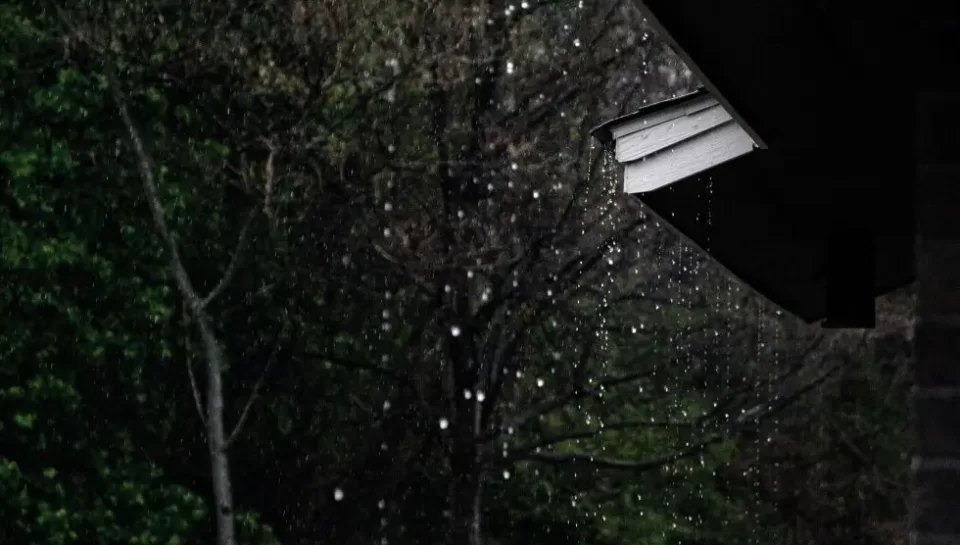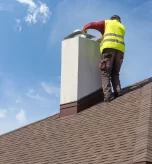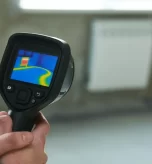Water damage can cause significant harm to your home, leading to costly repairs and potential health hazards. A House Inspection Company give you some tips for protecting your home from water damage:
- Regularly inspect your roof: Check for signs of wear and tear, such as cracked or missing shingles, and ensure that your gutters are clean and functioning properly.
- Install a sump pump: A sump pump can help prevent basement flooding by pumping out excess water that accumulates in the basement.
- Ensure proper drainage: Make sure that your yard is sloped away from your home’s foundation to prevent water from pooling around the foundation.
- Check your plumbing regularly: Inspect pipes, faucets, and other plumbing fixtures for leaks and address them promptly.
- Install water detection devices: These devices can alert you to leaks or other water-related issues before they cause significant damage.
By following these tips, you can help protect your home from water damage and avoid costly repairs.
Read More: What Is The Process Of Home Inspection Group?
Inspect Your Roof
Regularly inspecting your roof is an essential step in protecting your home from water damage. Here are some things to look for during a roof inspection:
- Missing or damaged shingles: Look for cracked, curled, or missing shingles. These can allow water to seep into your home.
- Damaged flashing: Check the flashing around chimneys, vents, and other roof protrusions. If it is damaged or missing, water can seep in and cause damage.
- Clogged gutters: Make sure your gutters are clear of debris and functioning properly. Clogged gutters can cause water to overflow, damaging your roof and the rest of your home.
- Sagging roof: If you notice any areas of your roof sagging, this could be a sign of water damage and should be addressed promptly.
- Signs of mold or algae: Look for any signs of mold or algae growth on your roof, as this can be an indication of water damage.
- Damage from fallen debris: If your area has experienced a severe storm, check your roof for damage from fallen debris such as tree limbs.
By inspecting your roof regularly and addressing any issues promptly, you can help prevent water damage to your home. If you’re not comfortable inspecting your roof yourself, consider hiring a professional roofing contractor to do the job.
Check For Leaks Around Windows
Checking for leaks around windows is an important step in preventing water damage to your home. Here’s how to check for leaks around windows:
- Look for visible signs of leaks: Check for water stains or discoloration around the windows, as well as any visible damage to the window frame or trim.
- Check for drafts: Run your hand around the edges of the window to feel for any drafts. If you feel a draft, this could indicate a leak.
- Use a flashlight: Shine a flashlight around the edges of the window frame to look for any gaps or cracks
If you find any signs of a leak, it’s important to address it promptly to prevent further water damage to your home. This could include replacing the caulking, repairing, or replacing the window frame, or installing weather stripping to improve the seal around the window. If you’re not comfortable making these repairs yourself, consider hiring a professional contractor to do the job.
Keep The Air Flowing
Keeping the air flowing in your home is important for preventing water damage and maintaining good indoor air quality. Here are some tips for keeping the air flowing:
- Use exhaust fans: Use exhaust fans in the kitchen, bathroom, and laundry room to remove excess moisture and prevent mold growth.
- Open windows: On mild days, open windows to allow fresh air to circulate through your home.
- Use a dehumidifier: If your home is particularly humid, consider using a dehumidifier to remove excess moisture from the air
By keeping the air flowing in your home House Inspection Company, you can help prevent moisture build-up and reduce the risk of water damage and mold growth. If you do experience water damage, it’s important to address it promptly to prevent further damage and potential health hazards.
Other Common Sources of Water Damage:
Water damage can be caused by a variety of sources in addition to roof leaks and window leaks. Here are some other common sources of water damage to be aware of:
- Burst or leaking pipes: Frozen pipes, old pipes, or pipes that are damaged can burst or leak and cause significant water damage.
- Plumbing problems: Problems with your plumbing system, such as a clogged drain or a faulty water heater, can cause water damage.
- Appliance leaks: Leaks from appliances such as dishwashers, washing machines, and refrigerators can cause water damage.
- HVAC system leaks: You’re heating, and cooling system can cause water damage if it leaks or is not properly maintained.
It’s important to be aware of these common sources of water damage and take steps to prevent them from occurring. Regularly inspecting your home for signs of damage or leaks, maintaining your plumbing and HVAC systems, and taking precautions during severe weather events can help prevent water damage and minimize its impact.
Read More: What Are The Stages Of The Inspections Group
Prevention is Key to Avoiding Water Damage
Prevention is key when it comes to avoiding water damage to your home. Here are some steps you can take to prevent water damage:
- Regularly inspect your home: Regularly inspect your home for signs of leaks or damage, including checking your roof, windows, plumbing, and appliances.
- Maintain your home’s systems: Regularly maintain your plumbing, HVAC, and other systems to prevent leaks and ensure they are functioning properly.
- Install a sump pump: If you have a basement, consider installing a sump pump to prevent flooding.
- Keep gutters and downspouts clear: Make sure your gutters and downspouts are clear of debris to prevent water from overflowing and causing damage.
By taking these preventive measures, you can help protect your home from water damage and avoid costly repairs. However, if you do experience water damage, it’s important to address it promptly to prevent further damage and potential
Conclusion
Water damage can be a costly and damaging problem for homeowners but taking preventive measures can help avoid it. Inspecting your home regularly for leaks or damage, maintaining your home’s systems, and being prepared for severe weather are some of the key steps you can take to prevent water damage.
It’s also important to address any leaks or damage promptly to prevent further damage and potential health hazards. By being proactive and taking steps to prevent water damage, you can help protect your home and avoid the need for costly repairs.





